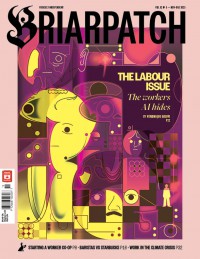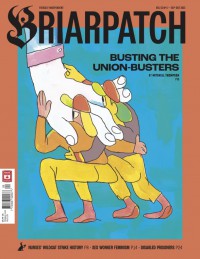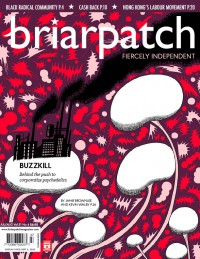-
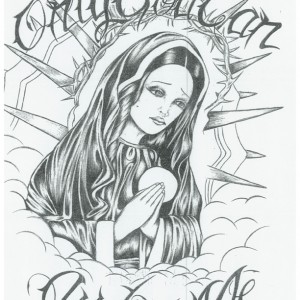 Magazine
MagazineOn Therapeutic Community
Why punitive, coercive, and obedience-based drug treatment programs in prison don’t work.
-

-
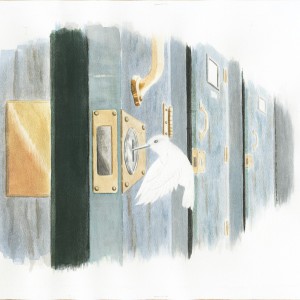
-
 Magazine
MagazineFed up with being locked down
Prisons cause irreparable harm to the people inside them. Destroy the system before it can destroy more lives.
-
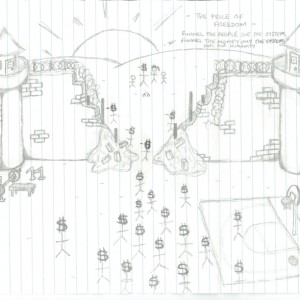 Magazine
MagazineEvidence of an unjust justice system
Governments criminalize poor people, and then allow companies to exploit prisoners’ basic needs for profit.
-
 Magazine
MagazineHow the Prison Abolition Issue came to be
Roughly 10 members of the editorial collective – comprised of Inreach and Free Lands Free Peoples members, and Briarpatch staff – have met every two weeks since April to shape this special issue.
-
 Magazine
MagazineHistory of a Prison
As Lorna Poplak’s new book “The Don: The Story of Toronto’s Infamous Jail” shows, it’s impossible for a history of a prison to disappear the continuity between one institution and the carceral whole.
-
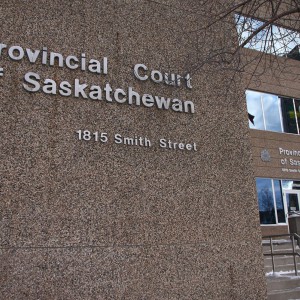 Sask Dispatch
Sask DispatchA fair day in – and out of – court
In Saskatchewan, what resources exist to help defendants navigate – and avoid getting trapped in – our complex and high-stakes court system?
-
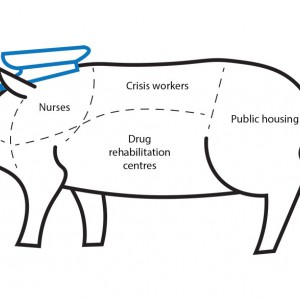 Magazine
MagazineA new crisis service
Amid calls to defund and ultimately abolish the police, we spoke to the people who are already working on replacing the police with crisis workers in Canada.
-
 Magazine
MagazinePrison unionism
How a public-sector union became the leading advocate of jail-building in Manitoba – and laid the foundation for the province’s incarceration disaster.
-
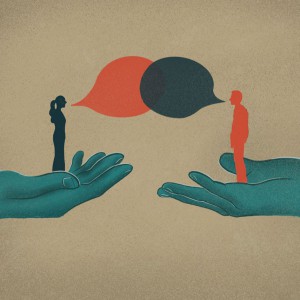 Magazine
MagazineBreaking the cycle of harm
To avoid police and prisons, more leftists are turning to accountability processes to repair harm. But fractious accountability processes are tearing communities apart. How might returning to transformative justice’s Black feminist roots help break the cycle?
-
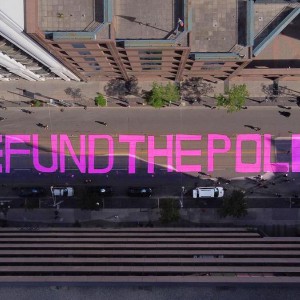 Magazine
Magazine“Defund the police” means “defund the police”
It’s a demand that’s easy to understand and easy to fight for, which is important because we’ll need a lot of people to help us win it.
-
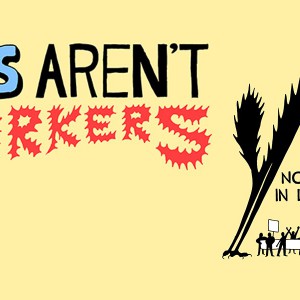 Online-only
Online-onlyIt’s time to talk about police in our unions
Toward an abolitionist approach to decent work for all
-
 Online-only
Online-onlyDisarming the people without disarming the state
When you factor in the long history of Black people, Indigenous people, and people of colour using guns to defend their communities against police, the military, and white supremacists, gun regulation takes on a different meaning.
-
 Online-only
Online-onlyCOVID-19 is raging through Quebec prisons
Prisoners are locked in their cells 24 hours a day, with no running water and guards who refuse to wear PPE. Some are comparing federal prisons, where populations are older, to long-term care homes, the site of the province’s most severe outbreaks.
-
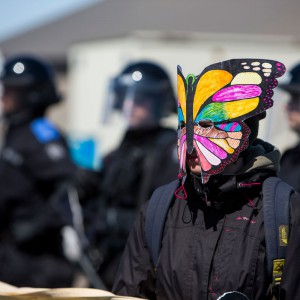 Magazine
MagazineThis is a prison, no matter what you call it
Activists are determined to halt the construction of a new migrant detention centre in Laval.
-
_300_300_90_s_c1_c_c.jpg) Magazine
MagazineThe dangerous illusion of the humane prison
The right of trans prisoners in Canada to self-identify their gender is an important win. How can it be used to fuel – and not drain – our efforts towards a future without prisons?
-
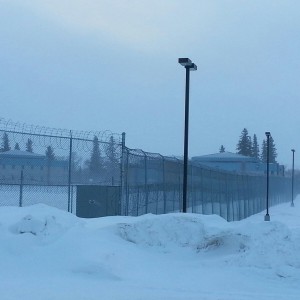 Magazine
MagazineProcess of depression
In 2016, Nicholas Dinardo was arrested and sent to remand at the Regina Correctional Centre. After remaining in segregation for most of the last year, he wrote this poem.
-
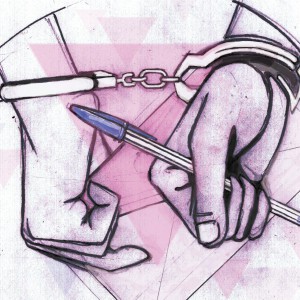 Magazine
MagazinePen Pal Solidarity
The Prisoner Correspondence Project connects LGBTQ2S inmates with pen pals on the outside. The relationships of care and empathy developed over years of exchanging letters are a form of radical solidarity that upends the control, surveillance, isolation, and erasure enforced by prisons.

